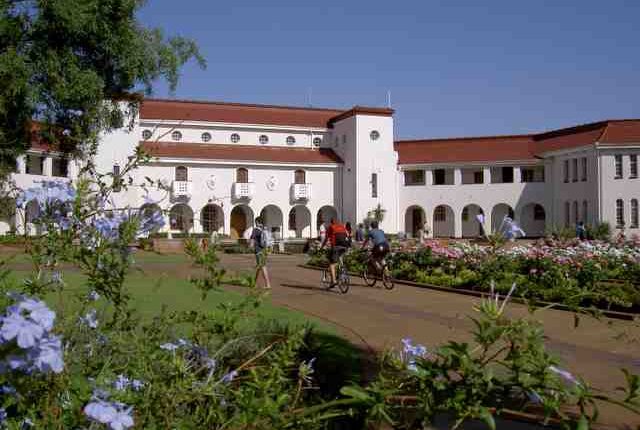North-West University: Technology and innovation experts at the NWU share knowledge with Malawian delegation
It takes a team of specialists to ensure that the bright ideas, groundbreaking innovations and impressive intellectual property of the North-West University (NWU) stay ahead of the pack in an increasingly competitive environment.
Recognising the expertise at the NWU, a delegation from Malawi visited the university’s Technology Transfer and Innovation Support (TTIS) Office from 2 to 4 November with the aim of establishing a similar office in their country – the first for Malawi.
The group of nine delegates, representing the National Commission for Science and Technology (NCST) in Malawi and the Malawi University of Business and Applied Sciences (MUBAS), say they came to learn about the operations and want to gain more insight into the intricacies of starting a similar office.
Their visit included a tour of the TTIS facilities and various presentations from NWU experts in the fields of commercialisation and intellectual property.
Dr Janine Chantson, chief director of the TTIS Office at the NWU, welcomed the group. “It is a pleasure to receive the delegates. We hope this visit will lead to more collaboration and engagement.”
Prof Ishmael Kosamu, deputy vice-chancellor at MUBAS, says the training was extremely useful. “It will help Malawi establish its first technology transfer office. The team really appreciates the knowledge that we gained and the practical experiences from the NWU team and the researchers who were invited.”
Isaac Chingota, chief technology transfer officer for the NCST, expressed the delegates’ gratitude for the warm hospitality they experienced at the NWU. “The training session has really met our expectations. More so, we have gathered insights into enabling national frameworks that can assist in managing the technology transfer systems in universities. We look forward to more interactions.”
The origin of TTIS at the NWU
Dr Chantson says that the NWU was one of the first universities to establish a technology transfer office in 1999. Since then, the university landscape has changed, with most universities in South Africa now also having established technology transfer offices.
“There was a major change in 2010 with the introduction of the Intellectual Property Rights from Publicly Financed Research and Development Act (IPR Act). The objective of the Act is to provide for intellectual property emanating from publicly financed research and development to be identified, protected, utilised, and commercialised for the benefit of the people of South Africa, whether it be for social, economic, military or any other benefit.”
Giving the Malawian delegates food for thought, Dr Chantson pointed out that South Africa’s IPR Act guides the performance of offices of technology transfer. This includes that, with respect to publicly financed research and development, they must develop and implement policies for disclosure, identification, protection, development and commercialisation on behalf of their institutions, and benefit-sharing arrangements, among other things.

